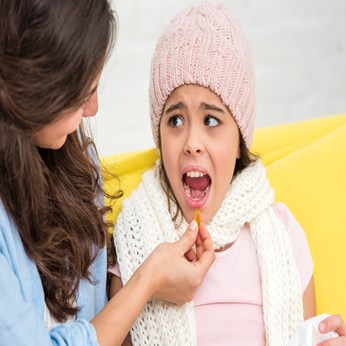9 Symptoms That Your Pet Bird Is Sick
As the owner of a bird, you owe great responsibility to ensure that the bird is healthy; we need to recognize the common signs and symptoms of illness to be prompt to take it to an avian vet. Examining the signs of infection early in the bird would go a long way to saving the life of a sick bird.
Symptoms to look for in a sick bird:
1) The color and consistency of a pet bird’s droppings is an important indicator; dropping that are yellow, tarry black or rusty brown could indicate internal bleeding or any other serious problem, while droppings that are runny or too firm indicates complications for your pet bird.
2) If the pet bird’s cere or the little patch above its beak that holds its nostrils is red, inflamed or runny, it means the pet bird is seriously ill; it needs to be warmed up and taken immediately to the avian vet.
3) Consider it serious if the pet bird sits with its feathers fluffed out or ruffled for a long time; fluffed out feathers indicate respiratory or other problems, while ruffled feathers conceal weight loss that could be life threatening to the pet. If this behavior persists for more than a day, immediately take the bird to an avian vet.
4) Watch out for your bird’s eyes that look cloudy with discharge; your pet bird could be affected by nervous, muscular or respiratory disorder that requires the immediate attention by a vet.

5) Birds are generally hygienic and take care to preen and keep their feathers clean; consider it serious if your bird has feathers around its face or rump that appear clumped up, stuck together or messy. Inform the avian vet of any changes in the food consumption or dropping for a day or two.
6) Watch out for your bird breathing with mouth open at rest; your bird could be seriously ill and suffering from respiratory problems. Your bird requires the immediate attention of an avian vet with probable hospitalization.
7) Birds have extremely high metabolisms and need adequate nutrition; if your bird loses weight or stops eating, it could indicate a sign of intestinal blockage or impaction and death in the absence of prompt medical attention.
8) Watch out for normal vocalization pattern of the bird; your bird could be less talkative than usual, or there is a general change in the frequency or general tone of vocalization. Watch out for other symptoms to give prompt attention and save the bird.
9) Repetitive bobbing of the tail is an indication of respiratory infection in birds; the muscles located at the base of the tail help birds to breathe, with the tail muscles working harder to breathe. Tail bobbing is often noticed only at later stages, so if you notice the bird behaving in this manner report to the vet immediately.
Image Courtesy: Bing
Take the next step toward your goals
Share your requirement and find the best care providers in your area
-
Looking for a caretaker’s job? Build your profile and get in touch with families in your vicinity.
-
Discover nannies, babysitters, cooks, housekeepers, pet sitters, and elder care under one roof.
-
Get all the support you need to run a successful care center.
-
Search for appropriate centers near you depending on your needs.
Care Corner Insights: Blog Library

When do newborns start smiling? All about this lovely baby milestone
There's perhaps no moment more magical in early parenthood

Learning through play: How it helps your child's growth
As parents, we often find ourselves caught between wanting our children to have fun and ensuring they're learning and developing properly. The good news? You don't have to choose between the two. Play-based learning is one of the most powerful tools

Signs and Symptoms of Strep Throat in Children: What Parents Should Know
When your child has a sore throat, it’s easy to brush it off as “just a cold.” But sometimes, that irritation could be more than just a passing bug. Strep throat, caused by group A Streptococcus bacteria, is one of the most common throat infections i

Hindi/Tamil-Speaking Nannies in San Jose, CA: Where to Find and How to Screen
For many NRI families here, there’s a big question that keeps coming up: Where can we find a nanny who speaks Hindi or Tamil, understands our culture, and truly connects with our kids?

Trusted Babysitters Near Redmond, WA Tech Hubs: Background Checks & Hourly Rates for NRI Families!
The hum of laptops, endless Zoom calls, and the rush of deadlines — welcome to life in Redmond’s buzzing tech hubs. For many NRI families working at Microsoft, Amazon, and startups around the Eastside, there’s one silent question always hanging in th

Back-to-School Tips: A Simple Guide for Parents to Make the Transition Easier
The sound of zipping backpacks, the rush for last-minute school supplies, and the quiet gulp of “summer’s over” — yes, it’s back-to-school

What is Conscious Discipline? How Parents and Caregivers Can Use It
In a world full of parenting advice, sticker charts, and timeout corners, Conscious Discipline stands out as a game-changer. It’s not just a method—it’s a mindset. And for parents and caregivers

Nanny vs. Daycare in Naperville, IL: What Works Best for Indian Working Couples?
Hey Naperville Parents! Balancing work and family life is no small feat—especially for Indian working couples trying to juggle careers, household responsibilities, and parenting. One of the biggest decisions you’ll face? Choosing between a nanny or

Housekeepers in Sugar Land, TX: Deep-Cleaning Checklists for Indian Homes
Housekeepers in Sugar Land, TX: Deep-Cleaning Checklists for Indian Homes Indian cooking = flavor + spices + love… but also oil splatters and stubborn stains. Time to reset! Degrease stovetops, chimneys, and exhaust fans. Scrub countertops, tiles,

12 Easy After-School Snack Ideas for Kids Who Get Hungry Quickly
School’s out, and the hunger hits hard! If your little ones come home ravenous and ready to raid the kitchen, you’re not alone. After-school snack time is prime time for refueling, recharging, and maybe even sneaking in a little nutrition. So here ar